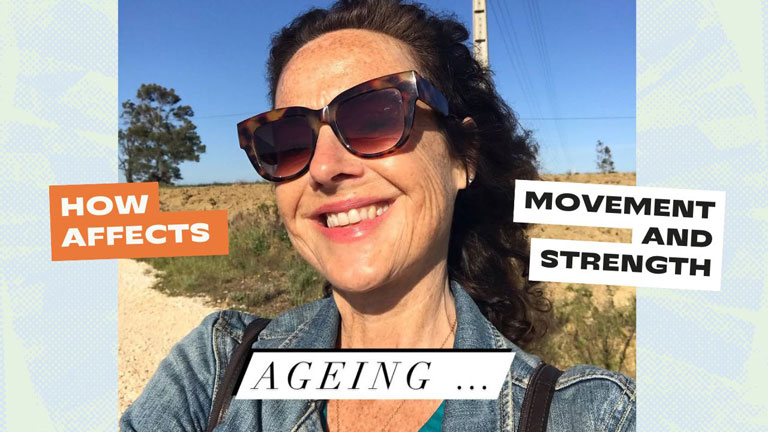
Time makes things and people older and weaker. In childhood, we are very active, in adulthood, we are stronger, and with age, we begin to feel weaker and more fragile. Our body cells and muscles keep changing every day. You may also feel that you are not the same as you were a few years ago. Look around you – many elderly people struggle to walk, have weaker eyesight, and their voices tremble.
Earlier, where you used to have strength in your hands, now even a little fatigue or stiffness in the joints starts bothering you. This change comes gradually with age. As soon as you wake up in the morning, your body feels stiff; after a short walk, you feel a strain in your legs, and sometimes, everyday tasks start feeling cumbersome. This is not just old age but a signal from your body that now you need to pay attention to your gait and strength.
What changes with age?
The effect of age is first seen on our muscles and bones. After the age of 30, the strength of the muscles gradually starts decreasing. If this is not taken care of, then by the ages of 50 and 60, this effect becomes more severe. Your daily tasks, like getting up from a chair, climbing stairs, or lifting something, start seeming more laborious than before.
The flexibility of the joints also decreases. Cartilage (the soft layer between bones) starts to wear away, which increases stiffness and pain. Many people complain of a “crackling” or “squeaking” sound when they move their hands and legs. This is normal, but it also indicates that your joints are not as strong as before.
Along with this, the nervous system slows down. Reactions are delayed, and balance starts to deteriorate. This is why older people are more prone to falling or stumbling.
Small signs that should not be ignored
Often, the effects of aging are not dramatic but gradual. It starts with the hands and wrists because these are the most used parts of the body. Typing, using a mobile, cooking, and driving a car every day—all these activities put constant pressure.
If you feel that you no longer have the strength to press buttons as easily as you used to or have trouble opening jars, this may not just be a sign of fatigue but muscle weakness. If you are searching for an experienced hand and wrist surgeon Manchester offers some of the best specialists dedicated to restoring mobility and comfort.
Effects of daily habits
The truth is that our lifestyle can speed up or slow down the pace of aging. If you remain active, your body’s strength remains for a long time. But if you spend most of the day sitting, then the muscles weaken quickly.
You do not need to become a fitness fanatic. Just small habits can make a big difference. For example:
- Stand up when talking on the phone.
- Climb the stairs instead of taking the elevator.
- Walk for a while every day.
In addition, light exercises such as squats, wall push-ups, or exercises with resistance bands help maintain muscle strength.
The effect of wrong sitting and working
Have you noticed that sitting in the same position for a long time leads to stiffness in the back or neck? This is the result of bad posture. If you work by bending down with the laptop screen down, then gradually the pressure on the spine and shoulders increases.
That is why it is important that you improve your sitting habits. The chair should be such that it supports the back, the screen should be in line with the eyes, and you should get up and stretch your body in between.
Role of food
With age, it is important to pay attention not only to exercise but also to food. Protein is important for maintaining muscles. Protein sources like pulses, milk, eggs, or cheese give strength to your body.
Calcium and vitamin D are very important for bones. If you spend less time in the sun, then you may be deficient in it. At the same time, drinking enough water is equally important because dehydration increases stiffness and fatigue in the joints.
Disadvantages of convenience
Today’s modern life is comfortable, but it also has disadvantages. Online shopping, remote work, and TV series have made us sit in chairs for hours. As a result, the body’s movement slows down.
When we move less, blood circulation weakens, muscles start to loosen due to disuse, and joints become stiff. The body learns what we teach it—if we teach it to rest, it will gradually forget to be active.
Easy ways to stay active
You don’t need to make a big change. Even small things make a difference. Just 10 minutes of stretching or a light walk after waking up in the morning can energize your day.
Solving puzzles, gardening, or doing light household chores are good ways to maintain the strength of hands and fingers.
If you work sitting for long hours, get up and walk for just 2-3 minutes every hour. This habit improves blood circulation and prevents stiffness in the body.


